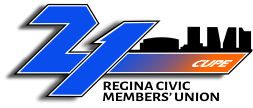Grievance Understanding & Process
What is a Grievance?
A grievance is a perceived breach / violation of your Collective Bargaining Agreement (CBA), Legislation, Human Rights violation, Occupational Health and Safety Act (OHS) violation or Labour Relations Act violation. A grievance is a mechanism that is unique to labour law. It is built into a Collective Bargaining Agreement. It is the way that one party to a Collective Bargaining Agreement enforces its rights under the agreement, if the other party doesn’t do what it is supposed to do.
If you believe that your rights have been violated, it is advised that you speak to your Union representative for help. They can help you to understand your rights, or help you formally or informally file a grievance.
NOTE: Submitting the form (Member's Potential Grievance Statement) below does NOT mean you are filing a grievance. A local 21 representative will contact you to discuss your issue and work with you to identify next steps.
Read the Collective Bargaining Agreement to help yourself understand your rights: https://www.local21.ca/resources/collective-agreement
- Article 8 (Grievances & Dispute Resolutions): Click here
- Member's Potential Grievance Statement: Click here
Who “owns” a Grievance?
A grievance is defined as a violation of the Collective Bargaining Agreement (CBA). For this reason, the Union “owns” the grievance, not the individual or group the grievance is filed on behalf of.
The Arbitration Process:
If a matter is not resolved during the grievance process, either party can take the dispute to arbitration. Arbitration operates like an informal court hearing, and the parties may select the arbitrator by mutual agreement or ask for an appointment from the Saskatchewan Minister of Labour.
The arbitration process generally begins with the applicable party filing the appropriate forms. The responding party may then address the application by filing a response. The application and response must adhere to particular steps and procedures outlined within the Collective Bargaining Agreement and Provincial Labour Law.
Benefits: Labour arbitration has several advantages that make it an attractive option for resolving conflicts in the workplace. Arbitration is known for its efficiency, often resulting in faster and more streamlined resolutions compared to traditional court litigation. Additionally, arbitrators, typically experts in labour relations, ensure that disputes are addressed by knowledgeable individuals. Arbitration hearings are private and not open to the public. However, the resulting arbitration award may be published and thus become part of the public record.
Parties also enjoy greater flexibility in the process, from selecting the arbitrator to customizing rules and scheduling hearings. While there are associated costs, the union and the employer pay for the costs of their own legal counsel and they equally share the cost of the Arbitrator and the arbitration hearing. The cost of a labour arbitration is less than that incurred in lengthy court proceedings. Furthermore, arbitration decisions tend to be final and binding, offering a high degree of certainty in the outcome.
Drawbacks: Typically, the Union has “carriage” of the grievance during the later and final stages of the grievance procedure; the employee does not have control or a final say in whether the grievance is referred to arbitration or how it is dealt with during the arbitration hearing. As long as the Union puts its mind to the issue in dispute and reaches a reasoned decision, the Union may decide to settle the grievance on terms it considers reasonable or it may withdraw the grievance entirely.
Additionally, arbitration decisions are “final and binding,” leaving limited opportunities for appeal unless the decision is determined to be “unreasonable.”
Helpful Links:
CUPE Saskatchewan Division:
https://sk.cupe.ca/cupe-saskatchewan-division/
Saskatchewan Employment Standards:
https://www.saskatchewan.ca/business/employment-standards
Saskatchewan Employment Act (SEA):
https://publications.saskatchewan.ca/#/products/70351
Saskatchewan Labour Relations Board:
Copyright © 2022-2025
Regina Civic Members' Union Local 21 - All Rights Reserved | Designed and Hosted by  - Videos provided by Firecube
- Videos provided by Firecube
